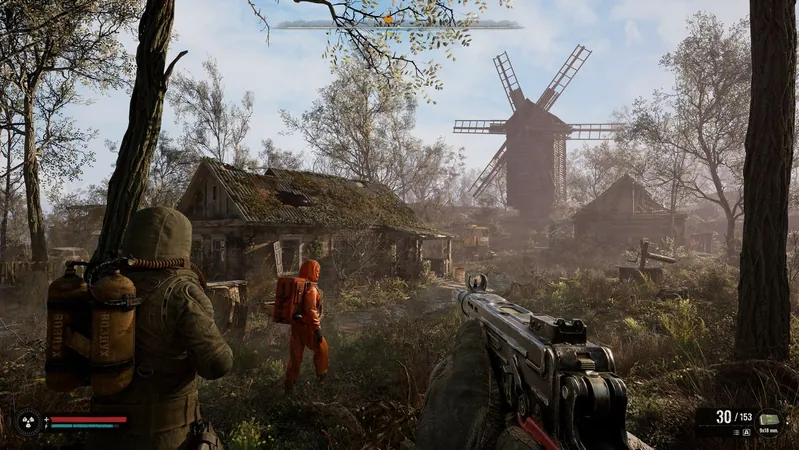
Virtual Warriors: How 'S.T.A.L.K.E.R. 2' Empowers Ukrainian Soldiers Amid Ongoing Conflict
2024-11-29
Author: Sophie
Introduction
As the dawn of a new gaming era arrived with the release of “S.T.A.L.K.E.R. 2: Heart of Chornobyl” on November 20, it became a phenomenon that transcended borders. For many, it’s not just an enticing adventure through a post-apocalyptic Chornobyl; for Ukrainian soldiers, it serves as a vital lifeline to their identity, memories, and even mental health during tumultuous times.
Real Experiences from the Front Lines
Take Ihor, a young fighter on the front lines who, even in the grips of battle, found solace in the comfort of his computer gameplay well past 1 a.m. Although he was one of the estimated 1.5 million gamers worldwide who downloaded the game in its opening week, his experience was starkly different. The echoes of gunfire do not depart just because he logged into a virtual world; they blend into the haunting reality of conflict. “Many locations in the game mirror real places where we fought,” Ihor shared with the Kyiv Independent. “Places like burnt-out houses and abandoned factories remind us of what we’re living through.”
A Cultural Milestone
Developed by Ukraine's GSC Game World, “S.T.A.L.K.E.R. 2” is the latest installment in a beloved franchise that has surged in popularity, particularly amongst soldiers who share a deep emotional connection with its themes of survival and resilience. From parliament congratulations to clever memes referencing a U.S. embassy closure coinciding with the game's launch, the excitement for “S.T.A.L.K.E.R. 2” echoed throughout Ukrainian society as a cultural milestone.
Gaming as a Form of Reprieve
For many in the military, playing the game is a reprieve from the rigors of war. Yevhen, a drone pilot in the 93rd Mechanized Brigade, characterized his gaming sessions at the base as vital downtime. “You can’t feel the war through the monitor,” he admitted. “It helps me relax and take a break.” Soldiers are even donning the term “Stalker” as a callsign—a nod to their affinity for the game and a tribute to those who lost their lives in battle.
Challenges of Game Development Amid Conflict
The context of this game has deepened since Russia's invasion in 2022. Originally slated for release in April of that year, the development team faced unprecedented challenges, including the loss of teammates and restructuring their operations in a different country. They shifted the game’s title from the Russian “Chernobyl” to the Ukrainian “Chornobyl” and excluded Russian voiceovers altogether, refusing to sell the game in Russia despite facing threats and cyberattacks.
Dedication to Defenders of Ukraine
In the game, the developers made a powerful declaration: it was dedicated “to all who have defended and are defending Ukraine.” This sentiment reverberates throughout the gameplay, echoing the soldiers' stories of survival, sacrifice, and, ultimately, hope.
Bittersweet Nostalgia
Despite the excitement, the harsh realities of combat mean some soldiers find it difficult to enjoy the full experience. Soldiers like Shtopor, whose anticipation for the new game was thwarted by military obligations, expressed bittersweet nostalgia. “I'm hoping to try it when taking leave next March for my fiancée’s birthday,” he remarked, reflecting on the contrast between the virtual and real-world enemy encounters.
Cultural Representation through Gaming
Moreover, “S.T.A.L.K.E.R. 2” is also a canvas upon which countless details of Ukrainian culture are painted. From a soundtrack filled with local beats to elements infused from everyday life in Ukraine, the game is brimming with authenticity. Mykyta Poturaiev, chair of the parliamentary Humanitarian and Information Policy Committee, emphasized the significance of this cultural representation, stating, “This is a very powerful message to the world—Ukraine will not be extinguished.”
A Manifesto of Resilience
Petro Shuklinov, an active soldier and former war correspondent, found the game’s significance profound. He articulated a sentiment shared by many soldiers: “It reminds us of our childhood.” He encapsulated the resonance of the game by stating, “For some, it’s just a game. But for me, it’s a manifesto: we are here, we are alive, we continue to fight.”
Conclusion
As the Ukrainian military continues to navigate the complexities of both combat and camaraderie, “S.T.A.L.K.E.R. 2” stands as a glowing beacon of cultural identity and resilience—a digital testament to a nation refusing to yield even in the darkest of times.
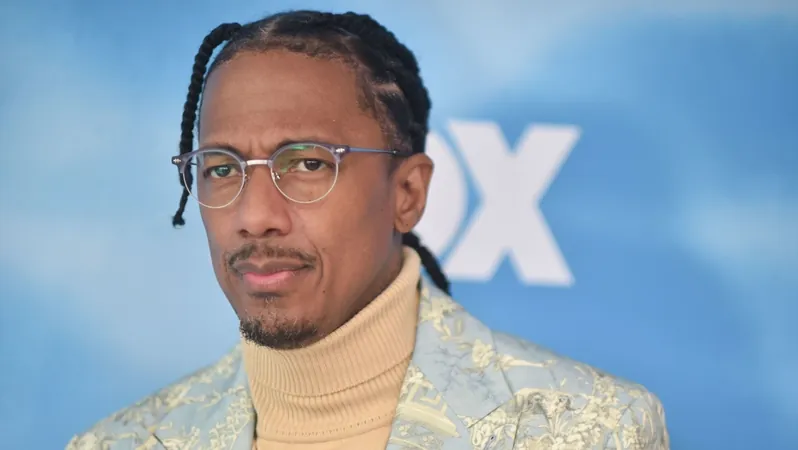


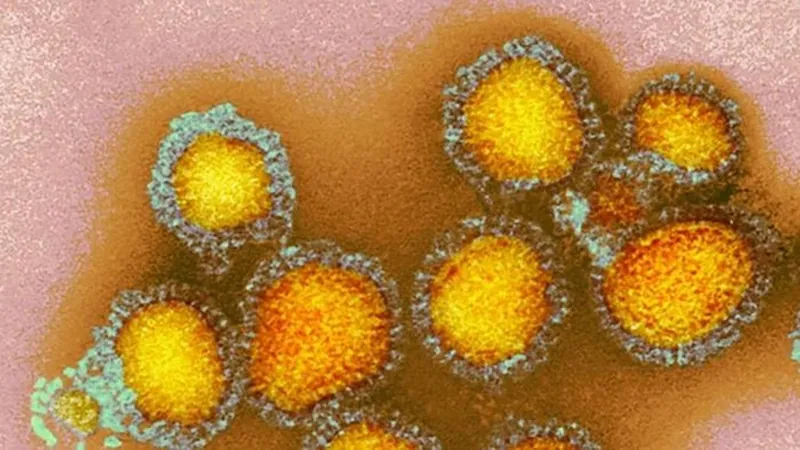


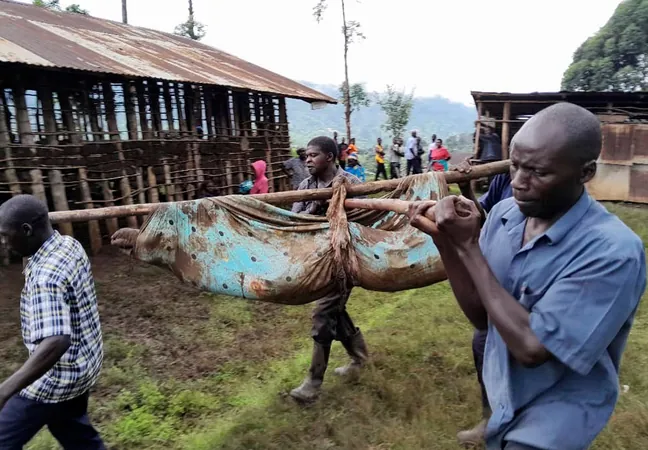

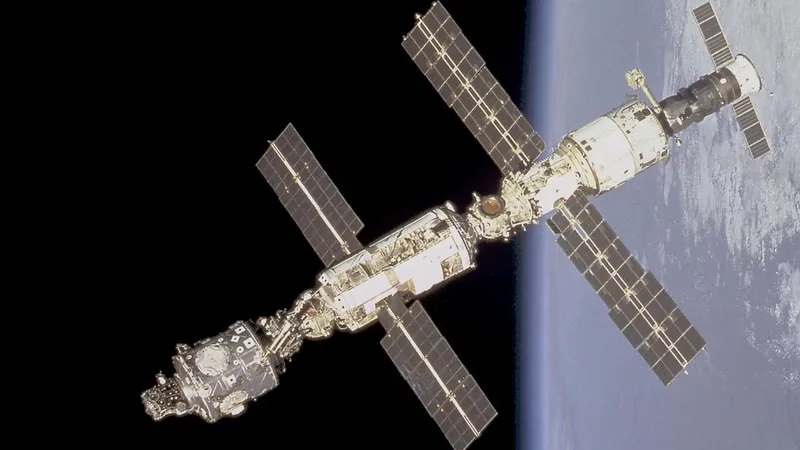
 Brasil (PT)
Brasil (PT)
 Canada (EN)
Canada (EN)
 Chile (ES)
Chile (ES)
 España (ES)
España (ES)
 France (FR)
France (FR)
 Hong Kong (EN)
Hong Kong (EN)
 Italia (IT)
Italia (IT)
 日本 (JA)
日本 (JA)
 Magyarország (HU)
Magyarország (HU)
 Norge (NO)
Norge (NO)
 Polska (PL)
Polska (PL)
 Schweiz (DE)
Schweiz (DE)
 Singapore (EN)
Singapore (EN)
 Sverige (SV)
Sverige (SV)
 Suomi (FI)
Suomi (FI)
 Türkiye (TR)
Türkiye (TR)